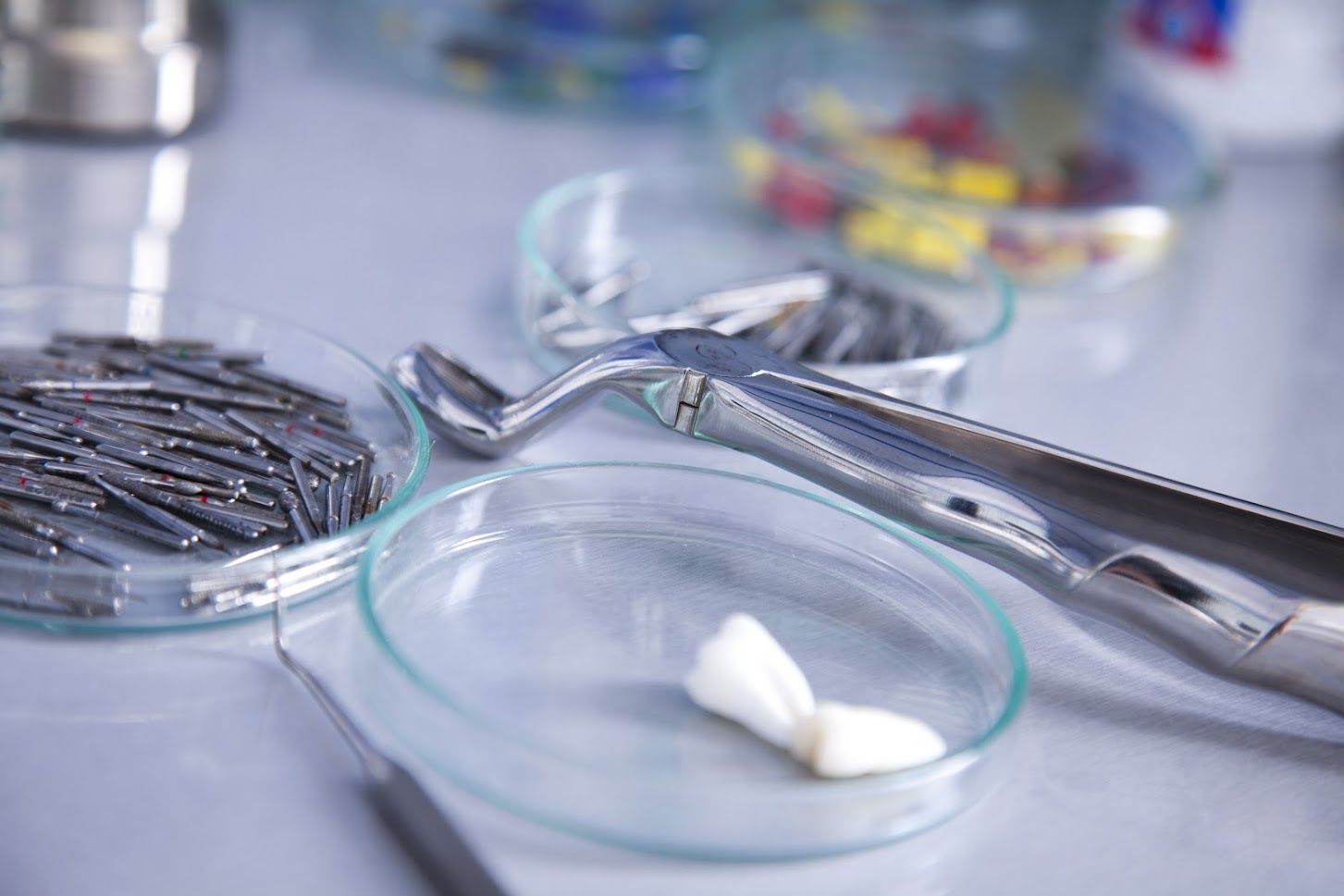(843) 216-0908
Can Dental Implants be Whitened?
How Products Whiten Teeth
For the many reasons listed above, teeth change colors over the years, however, most people want whiter teeth. Whitening treatments include whitening toothpaste, at-home treatments, and professional whitening techniques completed in a dentist’s office.
Whitening toothpaste contains ingredients such as silica, baking soda, activated charcoal, or hydrogen peroxide to remove stains. Silica is an abrasive material that scrubs the tooth’s surface as you brush. In contrast, hydrogen peroxide is a commonly used whitening agent that bleaches teeth to remove surface stains.
At-home treatments primarily use strips, pens, or trays containing a whitening solution to make your teeth whiter. The primary ingredients are either hydrogen peroxide or carbamide peroxide. Both products use a bleaching agent to break down stains and whiten your smile.
Professional whitening services tend to use similar bleaching ingredients as at-home kits but in stronger concentrations. Webmd.com discloses that at-home kits contain 3 to 20% peroxide solutions, where medically administered whitening can have peroxide concentrations of up to 43%.
As a general rule, robust solutions have more profound whitening results. However, you leave the more concentrated solution on for shorter periods. Applying solutions for longer times increases tooth sensitivity. Professional whitening treatments also use heat and light to intensify the process and improve results.
Can You Whiten Dental Implants?
No. Because dental implants are created from a non-porous material like ceramic or porcelain, the shade is less likely to change colors over time. However, consuming foods and drinks like red wine or blueberries can stain the crown of the implant and lead to discoloration. During routine cleanings, your dental hygienist will use special tools to clean your implants that prevent damage to the crown while removing any stains.
Natural teeth are more susceptible to color changes than implants.
Because of the inability to whiten dental implants, you should whiten your natural teeth before your dentist creates the crown for your implants. During the dental implant procedure, your dentist will match the shape and color of the crown with your existing teeth, making the new tooth indistinguishable from the rest.
If you whiten your natural teeth before receiving the crown, it will be necessary to regularly whiten your natural teeth, ensuring they all remain the same color.
How to Maintain White Teeth with Implants
When you address whitening concerns before opting for dental implants, your dentist can match the crown of your implants with your natural teeth giving you the whiter smile you desire. To keep your teeth the shade you want, pay attention to daily habits that cause discoloration.
If you already have an implant in place and want whiter teeth, you have fewer options. Replacements in the back of your mouth will not impact your smile. However, when your front teeth are not as white as you would like, you may have to replace the crown of the implant to achieve a whiter, more uniform smile.
Can Toothpaste With Whitening Agents Damage My Dental Implants
Whitening toothpaste often contains abrasive materials such as silica, activated charcoal, or baking soda. These coarse elements scrub the tooth to remove stains. Using abrasive material on dental implants can scratch the surface, allowing bacteria to infect the otherwise impenetrable tooth.
Using a whitening toothpaste occasionally should not damage crowns. However, regular care with toothpaste containing coarse ingredients could lead to permanent damage.
Alcohol-based mouthwashes can also damage dental implants by weakening some dental bonding agents. Always be sure to follow the care and maintenance guidelines for your dental implants as communicated by your dentist to ensure your implants continue to look their best.
Final Thoughts
Before completing the dental implant process, choose the shade of whiteness you want for the long term and have plans to maintain a whitening routine for your natural teeth. Taking this proactive step will allow your dentist to match your new crown with your existing teeth at the whiteness level you desire.
If you decide you want whiter teeth after an implant is in place, you may have to replace the crown to achieve this outcome.
FAQs
- Can I whiten my dental implants?
Dental implants are made of a different material than natural teeth and cannot be whitened. You can change the color of natural teeth through bleaching, but it will not change the crown’s color. The only way to adjust the whiteness of an implant is to replace the crown.
- Will dental implants yellow over time?
Over time natural teeth change colors due to many factors such as aging and enamel erosion. Natural teeth can also lose their whiteness due to staining from foods and drinks, tooth decay, or medications. Dental implants are made of a non-porous material that is less prone to discoloration.
- Can I change the color of my dental implants?
When the dentist sets the crown, they match it to the color of your natural teeth. The process ensures that the new tooth looks natural and is indistinguishable from the adjacent teeth. Over time your natural teeth can change colors, but the implant will remain the same. To maintain the smile you want, you should whiten your natural teeth before the dentist matches the implant color. Once the implant is created, you cannot change the level of whiteness.
The post Can Dental Implants be Whitened? appeared first on Smiles by Hogan.
CONTACT
Information
Phone: (843) 216-0908
Address: 3405 Salterbeck St. STE 100
Mt. Pleasant, SC 29466
Email: office@smilesbyhogan.com
BUSINESS
Hours
- Monday
- -
- Tuesday
- -
- Wed - Thu
- -
- Friday
- -
- Sat - Sun
- Closed
















